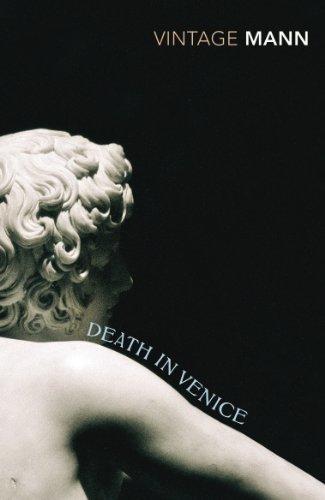Julia_98 reviewed Death in Venice and Other Stories by Thomas Mann
Beauty, Decay, and the Abyss – My Reflection on Thomas Mann’s Death in Venice
5 stars
Reading Death in Venice was like watching a man descend gracefully into ruin, one exquisite sentence at a time. From the opening pages, I sensed that Thomas Mann was not merely telling a story about an aging writer’s obsession but constructing a meditation on art, desire, and mortality. The novella’s rhythm—measured, deliberate, and almost hypnotic—pulled me into Gustav von Aschenbach’s inner world with unsettling intimacy.
Aschenbach, the disciplined and respected author, travels to Venice seeking rest and inspiration, but instead finds himself captivated by the beauty of a young boy, Tadzio. What fascinated me was how Mann treats this obsession: never crudely, never romantically, but as something metaphysical—a collision between the yearning for perfection and the inevitability of decay. I felt torn between admiration and pity as Aschenbach’s rational mind dissolved into feverish longing.
Venice itself becomes a mirror of his soul: magnificent yet rotting, luminous yet filled with the stench of cholera. Mann’s descriptions are so vivid that I could almost feel the oppressive heat, see the golden light shimmer over water tainted by death. The city, like Aschenbach, is both sublime and doomed.
What haunted me most was Mann’s precision—how he exposes the fragility beneath artistic discipline. Aschenbach’s fall is not only moral but aesthetic: in his pursuit of beauty, he becomes its victim. I couldn’t help but think of how thin the line is between admiration and surrender, between control and self-destruction.
When I closed the book, I felt a strange stillness. Death in Venice had not offered catharsis, but something more disquieting: the recognition that beauty, in its purest form, can consume as surely as disease. Mann’s prose lingers like the scent of the sea after a storm—beautiful, poisonous, unforgettable.
In Aschenbach’s death, I saw not failure but revelation: the ultimate, tragic price of loving the eternal through mortal eyes.

